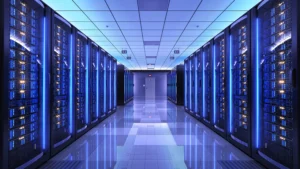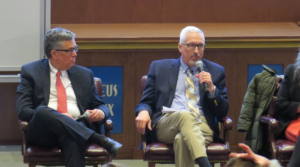The Future of Environmental Policy

Image courtesy of National Geographic
By Joe Frederick
This is an independently submitted op-ed for our Quill section. Views and statements made in this article do not necessarily reflect the opinions of The Tower.
Climate change is a key issue that the Biden Administration has decided to tackle. The Pew Research Center research shows that as of 2020 78 percent of Democrats said that climate change should be the top priority compared to only 21 percent of Republicans. The Biden Administration claims that their environmental policies will create ten million new jobs as they develop new technologies and implement those systems. While we don’t have concrete numbers on how long it will take to reach those predicted ten million jobs, the current Administration does plan to invest four hundred million dollars over the next ten years into this initiative.
Ten million jobs and four hundred million dollars sounds nice, especially to those who don’t mind government spending, but I don’t believe it is the whole picture. The Tax Foundation did an independent study of what impact the Biden Administration’s climate policy would have on the country over the next 10 years. Using their General Equilibrium Model they found the impact that the bill would have on Gross Domestic Product (GDP), Gross National Product (GNP), Capital Stock, Wage Rate, and Full-Time Equivalent jobs (FTE). Over the next ten years, GDP will decrease by .48 percent, GNP will decrease by .47 percent, the capital stock will decrease by .97 percent, the wage rate will decrease by .35 percent, and we will lose one hundred and twenty-five thousand FTE jobs. To put these numbers in perspective, the .48 percent loss in GDP is equal to $122,208,000,000, and a general decrease of capital stock by .97 percent would affect shareholders of all kinds of companies negatively. We are seeing an increase in young people investing, 80 percent of people identified as Gen-Z are investing now and even a .97 percent decrease in general capital stock will impact all of their portfolios in a negative way.
While there are estimates of a possible gain of ten million jobs we face an expected loss of one hundred and twenty-five thousand people that don’t have a guarantee that they will be part of that ten million. There are many people in the workforce today that, when the government’s policies go through, won’t have the transferable skills to help the new alternative energy solutions like wind solar and hydroelectric. When those people lose those jobs and don’t have those transferable skills, they will either be out of the workforce for a while or their departure from one part of the economy and into another will lead to a decrease in confidence in that sector and revenue from that sector will decrease.
This is a high price for the taxpayer just so the government can be the organization in charge of addressing the climate issue. In my opinion, the free market is the best area for innovation in the world. From cars, planes, and AC/DC current, to video Constructive Tomorrow (CFACT) is a non-profit that advocates for free-market solutions to environmental issues. When people think of electric cars, they think of Tesla, but every car company is making electric cars now. This competition between companies will cause prices to drop because each company will want their product sold and to do that they will be driving prices down to be the most cost efficient option while maintaining quality. If we can convince more private companies to start developing alternative energy solutions, we can get better and cheaper methods of generating things like wind, and solar without being at the whim of only one energy company like most cities are today. If organizations like CFACT can convince private businesses to take up the charge of improving existing sustainable energy options, we will arguably have a better solution than what the government can come up with.
With podcasts like District of Conservation, I hope more and more companies will see that it will be in the free market where I believe the most change will come and the companies that make the most innovation will reap the most profits which will in turn inspire more innovation. We as a country can use the free market to our advantage to solve one of the most important issues we talk about today.






